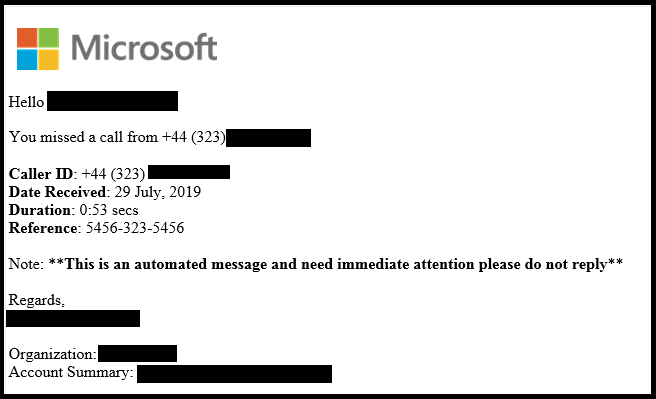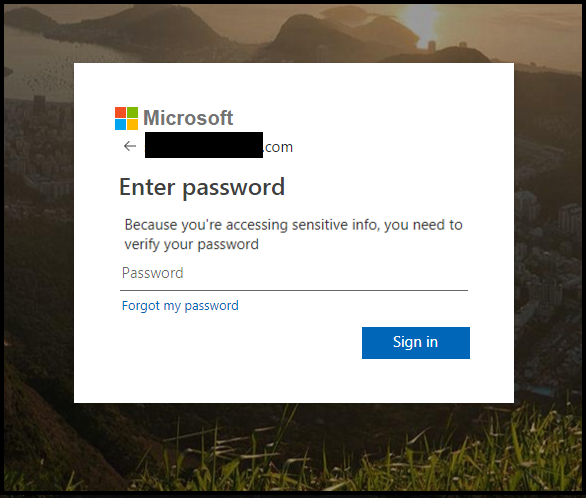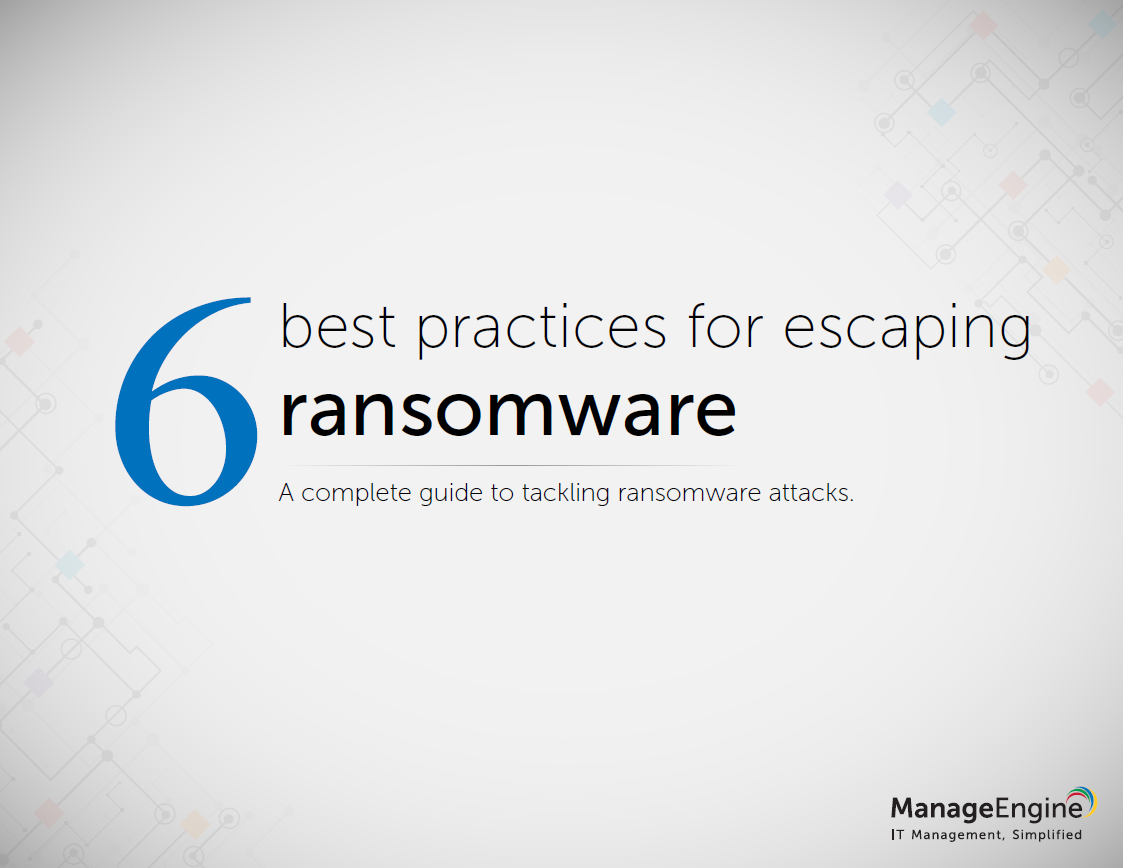Businesses stung by highly convincing Office 365 voicemail scam
This latest wave of phishing attacks incorporates real audio recordings to create a sense of urgency


Sign up today and you will receive a free copy of our Future Focus 2025 report - the leading guidance on AI, cybersecurity and other IT challenges as per 700+ senior executives
You are now subscribed
Your newsletter sign-up was successful
Cyber criminals are stealing the login credentials of Microsoft Office 365 users using a phishing campaign that tricks victims into believing they've been left voicemail messages.
In the last few weeks, there's been a surge in the number of employees being sent malicious emails that allege they have a missed call and voicemail message, along with a request to login to their Microsoft accounts.
The phishing emails also contain an HTML file, which varies slightly from victim to victim, but the most recent messages observed include a genuine audio recording, researchers with McAfee Labs have discovered.

Users are sent fake emails that inform them of a missed call and a voicemail message
When loaded, this HTML file redirects victims to a phishing website that appears to be virtually identical to the Microsoft login prompt, where details are requested and ultimately stolen.
"What sets this phishing campaign apart from others is the fact that it incorporates audio to create a sense of urgency which, in turn, prompts victims to access the malicious link," said McAfee's senior security researcher Oliver Devane.
"This gives the attacker the upper hand in the social engineering side of this campaign.
Sign up today and you will receive a free copy of our Future Focus 2025 report - the leading guidance on AI, cybersecurity and other IT challenges as per 700+ senior executives
This Office 365 campaign has made great efforts to appear legitimate, such as through designing the phishing site to resemble the Microsoft login page. Another trick the cyber scammers use to look real is by prepopulating victims' email addresses into the phishing site and requesting just the password.

The phishing site appears virtually identical to the actual Microsoft login prompt and preloads victims' emails
Users are presented with a successful login message once the password is provided, and are then redirected to the office.com login page.
Researchers found three different phishing kits being used to generate malicious websites, Voicemail Scmpage 2019, Office 365 Information Hollar, and a third unbranded kit without attribution.
The first two kits aim to gather users' email addresses, passwords, their IP addresses and location data. The third kit uses code from a previous malicious kit targeting Adobe users in 2017, the researchers said, and it's likely the old code has been reused by a new group.
RELATED RESOURCE

6 best practices for escaping ransomware
A complete guide to tackling ransomware attacks
A wide range of employees across several industries, from middle management to executive level, have been targeted, although the predominate victims are in the financial and IT services fields. There's also evidence to suggest several high-profile companies have been targeted.
McAfee has recommended as a matter of urgency that all Office 365 users implement two-factor authentication (2FA). Moreover, enterprise users have been urged to block .html and .htm attachments at the email gateway level so this kind of attack doesn't reach the final user.
"We urge all our readers to be vigilant when opening emails and to never open attachments from unknown senders," the researchers added. "We also strongly advise against using the same password for different services and, if a user believes that his/her password is compromised, it is recommended to change it as soon as possible."
The use of audio in this campaign points to a greater tenacity among cyber fraudsters, who are adopting more sophisticated social engineering techniques. For example, earlier this year artificial intelligence (AI) combined with voice technology was used to impersonate a business owner and fool his subordinate into wiring 200,000 to a hacker's bank account.

Keumars Afifi-Sabet is a writer and editor that specialises in public sector, cyber security, and cloud computing. He first joined ITPro as a staff writer in April 2018 and eventually became its Features Editor. Although a regular contributor to other tech sites in the past, these days you will find Keumars on LiveScience, where he runs its Technology section.
-
 What might cause the 'AI bubble' to burst?
What might cause the 'AI bubble' to burst?In-depth If a bubble is really forming, what happens to the businesses caught up in the AI craze when it pops – and why things might not be as bad as they seem
-
 London set to host OpenAI's largest research hub outside US
London set to host OpenAI's largest research hub outside USNews OpenAI wants to capitalize on the UK’s “world-class” talent in areas such as machine learning
-
 Google issues warning over ShinyHunters-branded vishing campaigns
Google issues warning over ShinyHunters-branded vishing campaignsNews Related groups are stealing data through voice phishing and fake credential harvesting websites
-
 Thousands of Microsoft Teams users are being targeted in a new phishing campaign
Thousands of Microsoft Teams users are being targeted in a new phishing campaignNews Microsoft Teams users should be on the alert, according to researchers at Check Point
-
 Microsoft warns of rising AitM phishing attacks on energy sector
Microsoft warns of rising AitM phishing attacks on energy sectorNews The campaign abused SharePoint file sharing services to deliver phishing payloads and altered inbox rules to maintain persistence
-
 Warning issued as surge in OAuth device code phishing leads to M365 account takeovers
Warning issued as surge in OAuth device code phishing leads to M365 account takeoversNews Successful attacks enable full M365 account access, opening the door to data theft, lateral movement, and persistent compromise
-
 Amazon CSO Stephen Schmidt says the company has rejected more than 1,800 fake North Korean job applicants in 18 months – but one managed to slip through the net
Amazon CSO Stephen Schmidt says the company has rejected more than 1,800 fake North Korean job applicants in 18 months – but one managed to slip through the netNews Analysis from Amazon highlights the growing scale of North Korean-backed "fake IT worker" campaigns
-
 Complacent Gen Z and Millennial workers are more likely to be duped by social engineering attacks
Complacent Gen Z and Millennial workers are more likely to be duped by social engineering attacksNews Overconfidence and a lack of security training are putting organizations at risk
-
 Hackers are abusing ConnectWise ScreenConnect, again
Hackers are abusing ConnectWise ScreenConnect, againNews A new spear phishing campaign has targeted more than 900 organizations with fake invitations from platforms like Zoom and Microsoft Teams.
-
 The Allianz Life data breach just took a huge turn for the worse
The Allianz Life data breach just took a huge turn for the worseNews Around 1.1 million Allianz Life customers are believed to have been impacted in a recent data breach, making up the vast majority of the insurer's North American customers.